The world’s largest investor says “coal is dead”.
When the historic Paris Agreement was forged, not only did we see an unprecedented level of cooperation within the negotiation process itself and later, rapid ratification by nations party to the Agreement, some of the most iconic and largest emitting businesses across the world declared their commitments to a 2 degree world.
With the engagement of the business sector a tipping point has been reached. This could be seen in plain view when, just the week before Trump announced the withdrawal of the US from the Paris Agreement, the world’s largest investment group, Blackrock, with more than $US5 trillion of assets under management declared the end of coal-fired electricity. The global head of BlackRock's infrastructure investment group, Jim Barry, was reported as saying, “anyone who's looking to take beyond a 10-year view on coal is gambling very significantly." He added that no board directors in the US would make a 30 year commitment to coal1.
The US withdrawal represents a recasting of the lead players who will take centre stage in clean energy economies of the future. Because, most sadly, what Trump and others of his mindset are doing, is damaging their opportunities to innovate and sell to increasingly lucrative markets seeking clean energy solutions. Trump’s headline comments that the move is designed to protect American jobs, ignores the billions of dollars that are flowing into clean technology and energy innovation – money that’s no longer flowing into fossil fuels. Global investment in the renewable energy industry has soared to more than $US300 billion annually from $20 billion over a decade ago1.
In the US itself, a new wind farm can be built in West Texas for just $22/MWh. Solar projects are costing less than $40/MWh in the Arizona and Nevada deserts. Compare those figures with the average lifetime cost of $52 for natural gas plants and about $65 for a coal-fired generator. Further, half a million Americans work in the renewable energy industries making it politically difficult to do anything to impact those industries 2.
China’s ready to lead. India sees opportunities
At the World Economic Forum in Davos in January of this year, President Xi of China stated that they are willing to “assume the mantle of leadership that so many are so eager to thrust upon it'. As China is the world’s largest emitter of greenhouse gases this is potentially more significant than the moves by the US and China plans to spend at least $360 billion on renewable energy by 2020 2.
Like China, India is suffering extreme levels of air pollution in major urban centres and has already implemented an odd and even day for vehicular access in some cities as well as taking the step of turning off a coal fired generator. Further, the application of microgrids powered by renewable sources is seen as a viable path to supplying electricity in rural areas.
While the US may still be the world’s largest economy by revenue, China leads from the measure of purchasing power parity. It is expected remain in first place well into the middle of the century. India is the other emerging giant.
Add to this dominance, we see world energy consumption forecast to grow by 48% through to 2040, with 71% of that demand driven by developing nations. It’s worth noting that China and India both have strong relationships and connections into the developing world to support clean energy solutions 2.
Businesses want the US to stay
Since Trump’s announcement we’ve seen prominent CEOs withdraw from the US Government’s business council: Tesla’s Elon Musk and the CEOs of Disney and Apple. Energy companies that have opposed the US withdrawal have included Berkshire Hathaway Energy, Calpine Corp., Exelon Corp., General Electric, PG&E Corp. and Royal Dutch Shell. In May, 30 CEOs of companies ranging from 3M, Dow Chemical, Pacific Gas & Electric, Bank of America Corp, DuPont, Procter & Gamble Johnson & Johnson, Coca Cola and Unilever were signatories to a letter directed to President Trump requesting that the US stay in the Paris agreement 3.
Iconic organisations, many of them US-based such as Walmart, Google and Coca Cola have set both strong emissions reduction goals and renewable energy targets. There are now 568 company signatories to the ‘We Mean Business’ coalition representing more than US$8 trillion in revenue4. The global investment community has sent clear signals that climate change is a risk that requires active management and disclosure, which was in stark evidence just last week as Exxon Mobil shareholders demanded climate disclosure on an annual basis and evidence of efforts to contribute to a 2 degree world 5.
The climate convention has a momentum that will not be slowed by the departure of the US
Energetics’ own Dr Mary Stewart saw first-hand the determination of the negotiators to make the Paris Agreement work, when she represented the World Business Council for Sustainable Development and Sustainable Business Australia, as a business observer to the UNFCCC’s climate conference held last month in Germany (listen to Mary’s podcast). Unsurprisingly the US had little presence at this ‘pre-COP’, instead China along with the EU and India, stood out.
As long as sufficient parties have ratified the Paris Agreement and it covers the required percentage of global emissions, it will continue to progress - to the clear detriment of those on the outer: Syria, Nicaragua and, in four years if Trump and his cohort continue to have their way, the United States.
References
[1] Australian Financial Review | BlackRock says coal is dead as it eyes renewable power splurge
[2] Energetics | A new climate for climate change
[3] The B Team | The B Team Statement on U.S. Withdrawal from Paris Agreement
[4] We Mean Business | Overview
[5] Footprint | Shareholders overrule Exxon board on carbon disclosure






